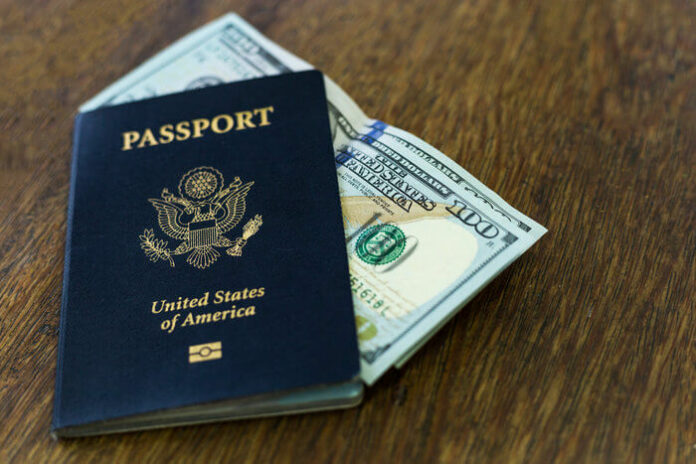How to get US Citizenship: That the United States of America is the most powerful nation in the world has seen it attract immigrants from all over the world searching for a better life. The US has often proved to e the land of opportunities for many people due to its large and diverse culture and economic opportunities. The US economy is among the freest economies in the world.
At the same time, the US passport is the third-strongest passport in the world, affording you the ability to enter 165 different countries without the need to obtain a visa in advance.
But becoming a US citizen is one of the hardest tasks you will engage in. The process is often long and bureaucratic, and even simple mistakes can disqualify you.
Apart from the Green Card program, the US does offer special visa options for persons with exceptional talent and for high-value investors. But you must still meet all naturalization requirements to become a US citizen.
The general steps to how to get US Citizenship are as follows:
- Apply for permanent residency;
- Obtain your green card;
- Reside in the US continuously for five years;
- Apply for naturalization;
- Pass your English Language and Civics tests;
- Attend a citizenship ceremony and take an Oath of Allegiance to the US; and
- Apply for your US passport.
Now here are the categories you can apply for as explained by the US-based Kenyan online journal, Mwakilishi.
Immediate Relative of a US citizen:
An immediate relative of a US citizen is defined by the United States Citizenship and Immigration Services (USCIS) as either a spouse of a US citizen, an unmarried child under the age of 21 of a US citizen, or a parent of a US citizen sho is at least 21 years old.
There is no limit to the number of green cards that can be issued by the USCIS each year to immediate relatives.
Other Relative of a US Citizen or a Relative of a Lawful Permanent Resident:
This includes unmarried son or daughter (21 years or older) of a US citizen, married son or daughter of a US citizen, brother or sister (21 years or older) of a US citizen, spouse of a lawful permanent resident, unmarried child under the age of 21 of a lawful permanent resident, or unmarried son or daughter (21 years or older) of a lawful permanent resident.
A maximum of 480,000 green card each year are granted under this category on a first come-first-served basis. As such, most foreigners applying under this category spend many years (as many as over 20 years in some cases) in the waiting list.
Employment:
140,000 green cards are issued each year to foreigners possessing unique talents or job skills that have shortage in the US. This category includes people with extraordinary ability in the sciences, arts, education, business, athletics, professors, and researchers. The cater also include physicians willing to work in designated underserved areas within the US for a set period of time, as well as those investing at least $1 million in a new business in the US that will create at least 10 full-time jobs.
Green Card Lottery:
50,000 green cards are made available each year through a lottery system to nationals or countries with historically low rates of immigration to the United States. Applications are submitted online for a period of one month between October and November each year.
Green card as a Special Immigrant:
This category includes religious workers coming to the US to work for a nonprofit religious organization, a child that has been abused, abandon, or neglected by a parent and have a Special Immigrant Juvenile (SIJ) states, an international broadcaster coming to to work in the US as amber of the media, as well as retired officers or employees of certain international organizations or NATO.
Refugee and Political Asylum:
Refugees and those living in the US on asylum can apply for a green card one year after being granted refugee/asylee status. This includes people who fled their home countries for fear of, or experienced persecution based on race, religion, nationality, political opinion, or for membership in a particular social group.
Green Card for Human Trafficking and Crime Victims:
Immigrants who have been victims of human trafficking and currently have a T non-immigrant visa , or who have been victims of a crime and have a U non-immigrant visa are available for apply for a green card.
Green Card for Victims of Abuse:
Abused spouses or US citizens or lawful permanent residents, abused children of a US citizen or lawful permanent residents, and abused parents of US citizens may all be eligible to apply for permanent residency.
Person born in the United States to a foreign diplomat:
If you were born in the United States to a foreign diplomatic officer who was stationed in the US when you were born, then you may be eligible to apply for a green card.
Section 13 (Diplomat)
If you were stationed in the US as a foreign diplomat or high ranking official and are unable to return home then you may be eligible to apply for a green card.
Under most of the above categories, permanent residents become eligible to apply for naturalization in five years provided they live permanently in the US for five years and have good moral character. Those married to US citizens become eligible to apply for citizenship three years after becoming permanent residents.








